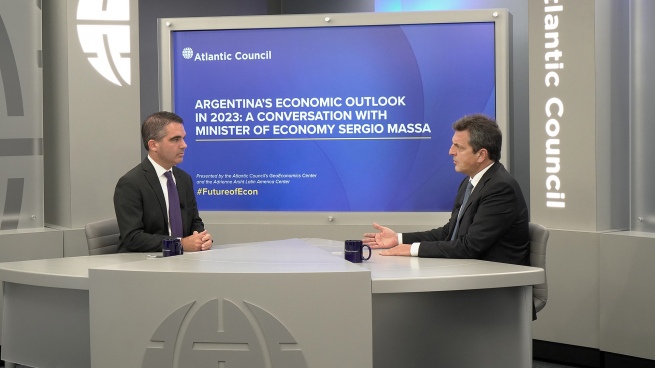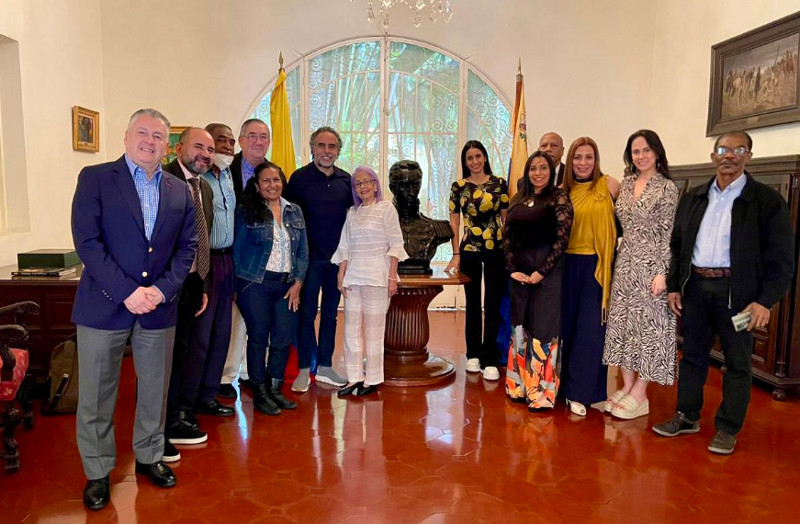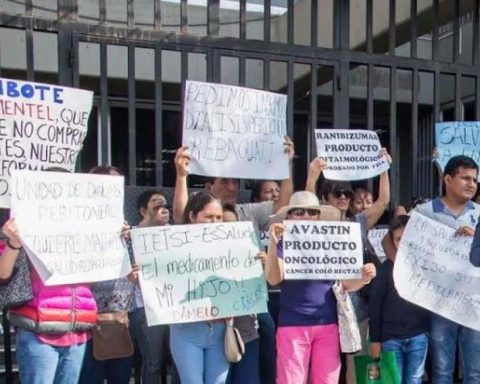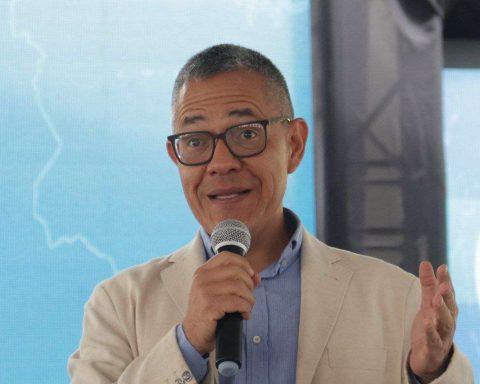Economy Minister Sergio Massa said this Friday that “The Government’s obsession is to work every day to continue traveling the descending ladder month after month” of the inflation ratebut ruled out the possibility of a price freeze.
After ratifying the intention of the economic team to strengthen the Care Prices program as a tool for seeking agreements to order the macroeconomy, Massa, at the end of his visit in Washington, also spoke of his interest in “promoting the autarky of Indec and the Commission for the Defense of Competition.
“Inflation requires a path to travel through Argentina of fiscal order, trade surplus, care of reserves and an interest rate that increases operations in pesos. Nobody can magically solve a problem that is structural,” said the minister.
“Inflation requires a path to travel through Argentina of fiscal order, trade surplus, care of reserves and an interest rate that increases operations in pesos. No one can magically solve a problem that is structural”Serge Massa
“My idea is to follow a path of gradual reduction in inflation, understanding that there may be measures that can reduce it a little more, but there is no such thing as the magic of reducing it from one day to the next,” he said.
While ruling out a price freeze, he said will choose to “accompany the announced measures with programs for some of the most vulnerable sectorsthat strengthen what the Care Prices groups represent”.
This is, he explained, “a program that can last a longer amount of time and has more products, has a guarantee of supply and its price can be included in the packaging.”

Massa made these statements in dialogue with the Argentine press that followed his visit to Washington, including Télam, after knowing the inflation dataand after he spoke at noon on Friday at the Atlantic Council think tank.
Inflation was the topic that flew over all the meetings that Massa held with international organizations; The Monetary Fund stressed the need to make efforts in this regard and to “protect the vulnerable”, something that “is contemplated in Argentina’s program with the IMF,” they remarked from the agency’s staff at press conferences.
“Today’s news of inflation marks the second consecutive month in which we managed to reduce the index, but I am still not satisfied at all,” said Massa, after learning that the Consumer Price Index (CPI) reported by Indec was 6.2%.
And he continued: “Our obsession has to be to work every month to continue walking the downward ladder. I would settle if it is zero.”
“Today’s news on inflation marks the second consecutive month in which we managed to reduce the index, but I’m still not very satisfied”Serge Massa
The head of the Treasury Palace was asked if he believes that Argentina will be able to meet the 95% goal for this year based on the official projections of the 2023 Budget. “We still have to see how it goes next month and the expectation is that month after month it will go down, but I think that the annual goal of 95% could still be met,” he replied.
Likewise, Massa came out at the crossroads of the statements made by the director of the Fund’s Western Hemisphere, Ilhan Godlfjan, who considered that multiple exchange rates “must be deactivated”, and refuted the Fund official, considering that it is ” fiscal devaluations” promoted by the IMF itself and that were never questioned in the agreement that Argentina signed with the Fund.
“The IMF was not unaware of the situation of the exchange rate in Argentina and one cannot act surprised; in the agreement signed with the IMF there is not a single line on that subject,” Massa said, consulted by the Argentine press.

Regarding the new and baptized “Qatar dollar”the minister replied that he is an admirer of Gita Gopinath, the second of the IMF, and of her academic works on “fiscal devaluations”, which the economist preached throughout her academic career.
“It’s something I told him about in the talk we had on Thursday,” the official revealed.
“In the program with the IMF, what they ask is to strengthen the fiscal and If I collect taxes to strengthen reserves, so that it is not a festival of the misuse of dollars, the problem is not seen”reasoned the minister, in the context of the situation of shortage of foreign exchange in which Argentina finds itself.
And he completed: “The tax regime for the authorization of cards abroad is part of a group of measures to try to take care of what we get with the export promotion regime.”
“We have to take care of what we get,” he insisted. reserves must be taken care of, because the Argentine economy is going to be strong when it has a commercial surplus and accumulates reserves”.
“The tax regime for the authorization of cards abroad is part of a group of measures to try to take care of what we achieve with the export promotion regime”Serge Massa
Massa, who received the CPI for September on his cell phone while talking with journalists in Washington, had anticipated that the month’s data would “fall significantly” and reiterated concepts of “a path of downward, gradual, serious, firm travel” to face the rise in prices, when speaking at the Atlantic Council under the title “The economic prospects of Argentina in 2023”.
for the minister, “Inflation is the most destructive tax on an economy. because it also has an impact on everyone’s pocket in an equitable way, so it destroys more the income of those who have less than those who have more”.
“Today our responsibility is to stabilize, our most important challenge is to lower inflation and our task for 2023 is to try to sustain levels of public investment and improve income, as the most important challenges,” he concluded.
At the Council, he was visited by funds from London, New York, businessmen and bankers, the former United States ambassador to Argentina Earl Wayne and the former IMF number two, Jeoffrey Okimoto, who is now managing director at Goldman Sachs, who gave him a warm hug on your way out.
A delegation from Banco Galicia also attended, visiting Washington on the occasion of the events that take place in parallel to the Annual Assembly of the World Bank, and among them was the head of the bank, Eduardo Escassany, among others.


















